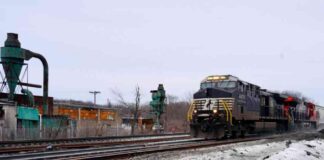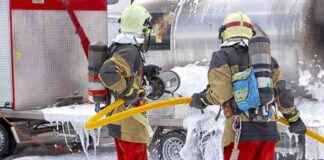A small town in western Pennsylvania, Yukon, is facing a significant environmental crisis due to the activities of a local landfill. The landfill, managed by Max Environmental Technologies, has been releasing treated wastewater into Sewickley Creek, causing severe pollution that has resulted in elevated levels of radioactivity and toxicity downstream. The impacts of this pollution have been felt by residents for decades, leading to serious health issues and environmental degradation.
Concerns and Impacts on Residents
For years, the residents of Yukon have raised alarms about the landfill’s operations, linking them to various health problems, including cancers, miscarriages, respiratory issues, and neurological diseases. The landfill’s proximity to homes and farms has caused significant distress among the community, with many reporting odors, dust, noise, and spills affecting their daily lives. The impacts of the pollution have been so severe that the U.S. Environmental Protection Agency ranks Yukon higher for key health problems like cancer and heart disease compared to state and national averages.
John Stolz, a professor of environmental microbiology at Duquesne University, has been studying the effects of oil and gas waste in Pennsylvania for 15 years. He emphasized the dangers of exposure to the polluted water, advising against eating fish or swimming in the contaminated creek. EPA water quality data for Sewickley Creek indicates that the water is classified as “impaired,” further highlighting the severity of the situation.
Regulatory Challenges and Industry Practices
As the fracking industry in Pennsylvania boomed, so did the generation of oil and gas waste. The state saw a significant increase in solid waste and wastewater production, posing regulatory challenges due to the toxic and often radioactive nature of the waste. The disposal of this waste has been a contentious issue, with various methods, including underground injection and landfilling, raising environmental concerns.
The landfill’s acceptance of oil and gas waste, which can become radioactive during the extraction process, has raised questions about the long-term impacts on the environment and public health. Despite claiming not to accept radioactive waste, Max Environmental was found to have detected radioactive materials in incoming waste and sought approval to dispose of it onsite. The legacy of the fracking boom has left a lasting imprint on the environment, with concerns about the contamination of waterways and potential health risks to the community.
The complexity of the issue, coupled with inadequate regulatory oversight and monitoring, has led to a lack of accountability and transparency in waste disposal practices. The landfill’s history of noncompliance with environmental regulations, as highlighted by EPA inspections and monitoring, underscores the need for stricter enforcement and oversight to protect public health and the environment.
In conclusion, the pollution caused by the Yukon landfill is emblematic of a larger environmental crisis facing communities across the country. The challenges posed by toxic waste disposal and the lack of comprehensive regulations highlight the urgent need for stronger environmental protections and oversight. As residents continue to grapple with the consequences of pollution from the landfill, the call for accountability and action to address the root causes of contamination grows louder. The long-term impacts of the pollution, particularly in terms of public health and environmental degradation, underscore the importance of addressing these issues with urgency and diligence.














